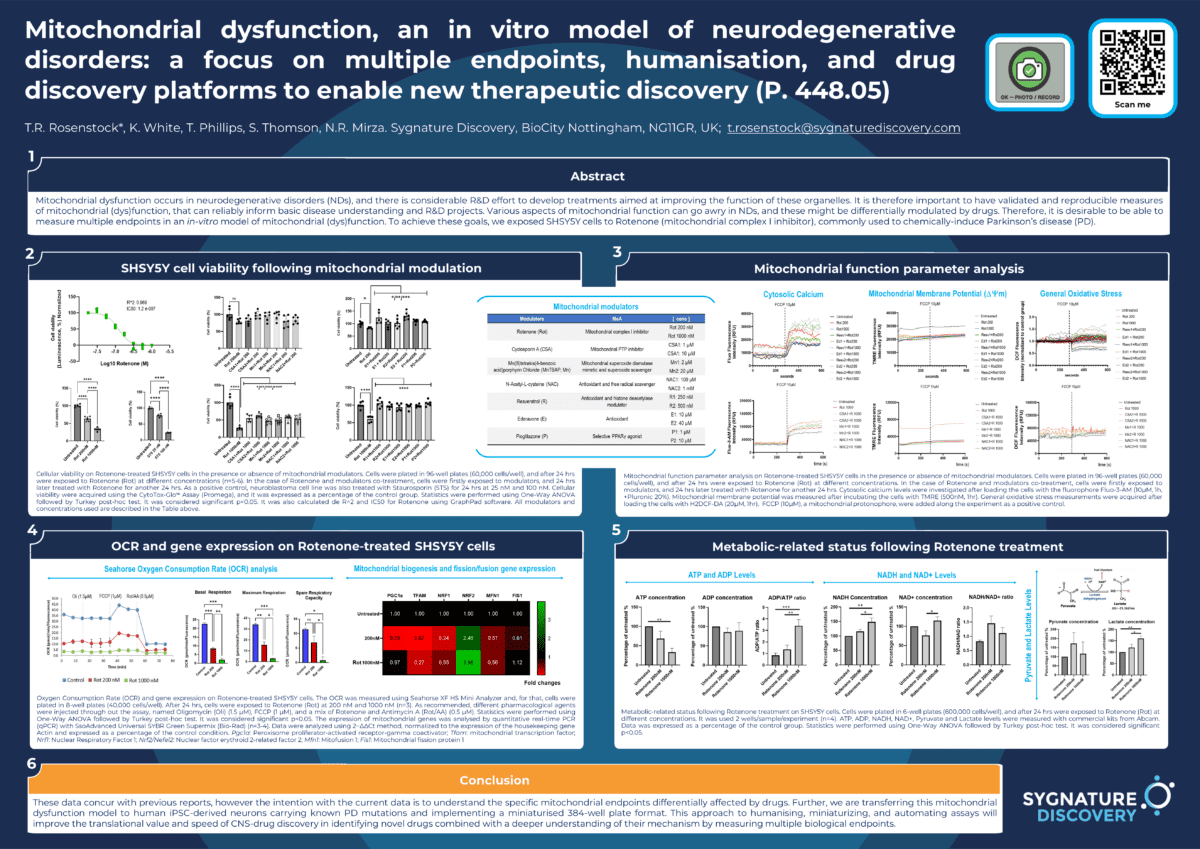Mitochondrial dysfunction, an in vitro model of neurodegenerative disorders: a focus on multiple endpoints, humanisation, and drug discovery platforms to enable new therapeutic discov
Mitochondrial dysfunction is a common feature in several neurodegenerative disorders (NDs), and there is considerable R&D effort to develop treatments aimed at improving the function of these organelles. Therefore, validated and reproducible measures of mitochondrial (dys)function are crucial to reliably inform basic disease understanding and R&D projects.
We analysed various aspects of mitochondrial function in an in vitro model of mitochondrial dysfunction. To induce this dysfunction, we used SHSY5Y cells exposed to Rotenone, a mitochondrial complex I inhibitor commonly used to induce Parkinson’s disease. Our assessments included mitochondrial membrane potential (MMP), oxidative stress, Ca2+ homeostasis, oxygen consumption rate (OCR), ATP, ADP, Pyruvate, Lactate, NAD+, and NADH levels. This knowledge is used to study mitochondrial function in fibroblasts from PD patients and human iPSC-derived neurons with PD mutations, using a miniaturized 384-well plate format. This approach humanizes, miniaturizes, and automates assays, enhancing the translational value and speed of CNS drug discovery for novel treatments.

